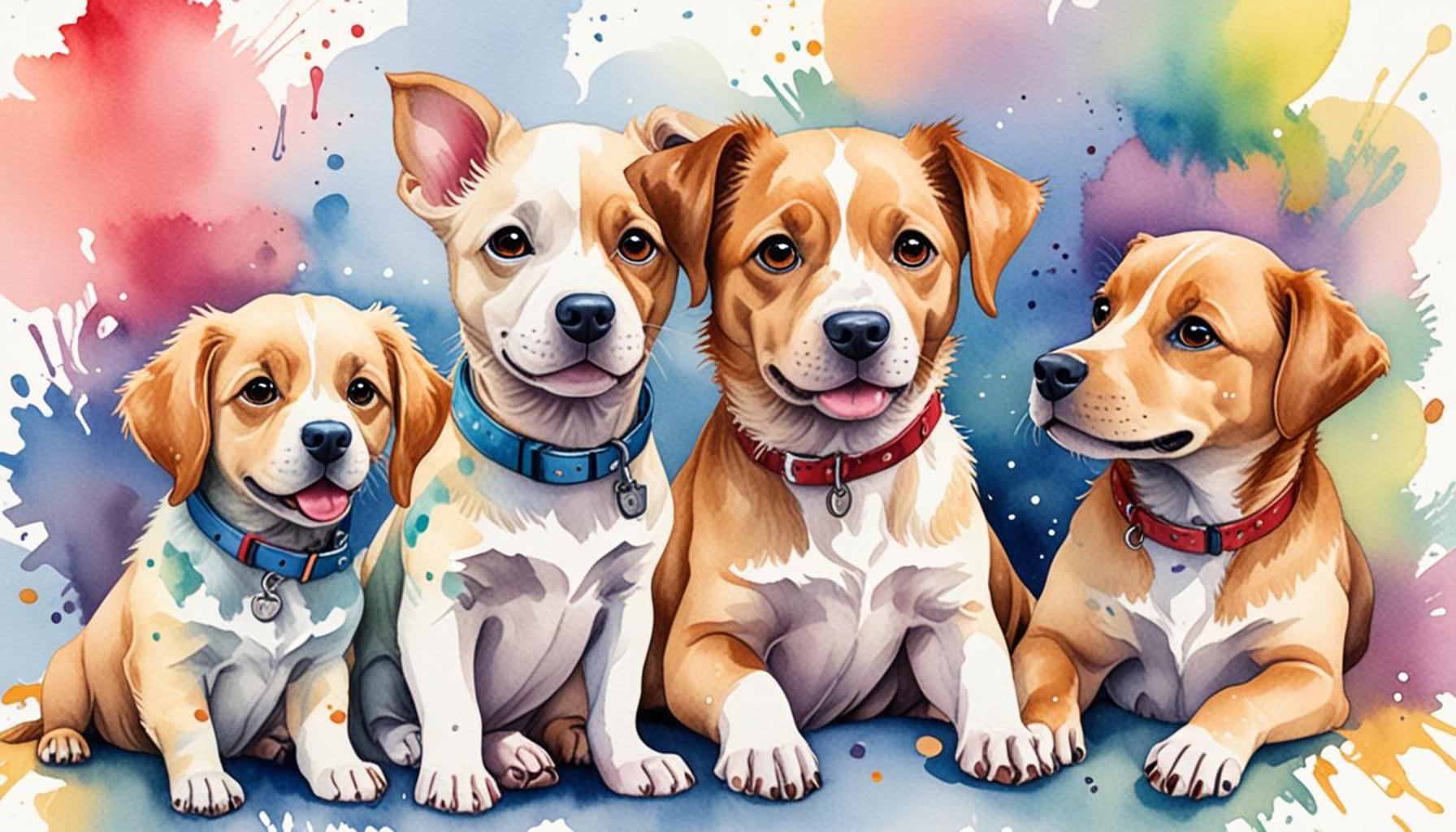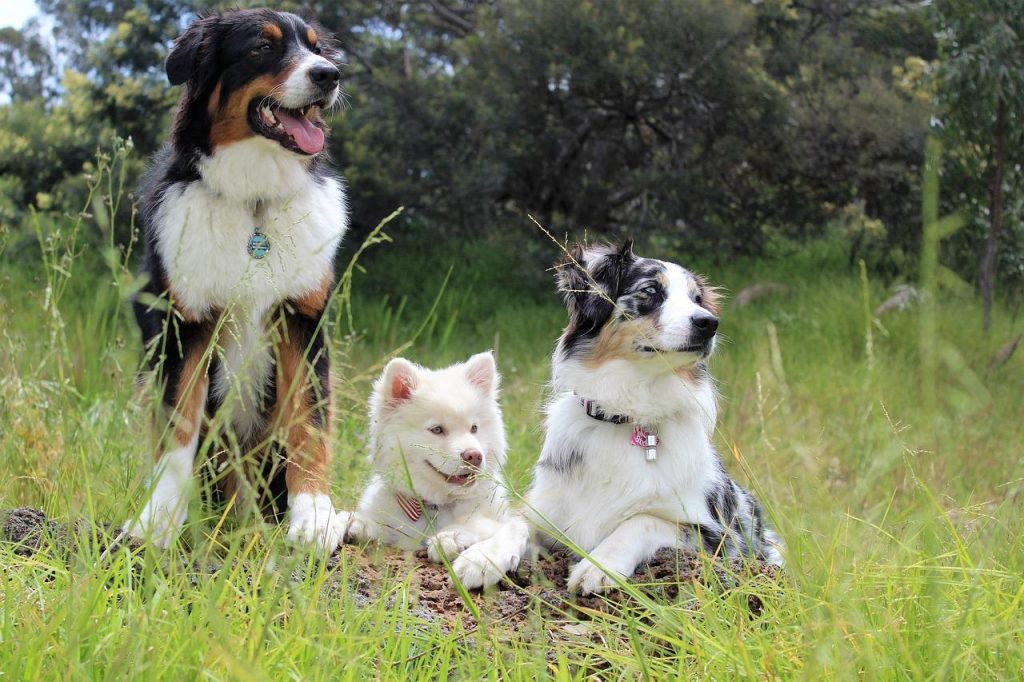The Importance of Socialization in Puppyhood

Understanding the Importance of Early Socialization
During the critical period of puppyhood, socialization plays a vital role in shaping a dog’s future behavior. Puppies are incredibly impressionable, and their interactions in these early weeks can have lasting implications throughout their lives. Proper exposure to a variety of environments, individuals, and other animals can mitigate the chances of developing behavioral problems later on. It’s fascinating to realize that a well-socialized puppy could mean the difference between a happy, confident dog and one prone to anxiety or aggression in uncertain situations.
Key Benefits of Puppy Socialization
- Reduces Fear: Early interactions help puppies learn that novel experiences are safe, diminishing their likelihood of fearful reactions. For instance, introducing your puppy to bustling areas, such as parks or busy sidewalks, can teach them that being around different sounds and people is entirely normal.
- Improves Adaptability: Socialized puppies tend to adjust better to new and unexpected situations. For example, a puppy exposed to varied stimuli—like different types of floors, bustling households, or even diverse groups of people—will likely adapt well when encountering similar situations in the future.
- Enhances Communication: Learning how to properly interact with other dogs and humans develops essential communication skills. Dogs that have interacted with peers in their formative days exhibit better body language and play etiquette, reducing the chances of miscommunications that can lead to conflict.
- Strengthens Bonds: Positive experiences with people reinforce trust and solidify the human-animal bond. When puppies recognize that interactions are pleasant, it promotes a lifelong friendship and loyalty to their human companions.
Puppy socialization should ideally commence in the first few weeks of life. These formative experiences lay the groundwork for future behavior and considerably impact a dog’s temperament as they transition into adulthood. Engaging in puppy classes, organized playdates, and safe outings around the neighborhood can significantly enrich a puppy’s social experience. The goal is not only to ensure exposure but to make certain that these interactions are diverse, positive, and constructive. This approach will help your puppy evolve into a confident and well-adjusted member of both your family and the broader community.
Moreover, many dog trainers and veterinarians recommend socialization activities that include meeting older dogs, participating in gentle structured play, and safely meeting people of varying ages. It’s also valuable to expose puppies to different situations, such as car rides or visits to local pet-friendly stores, which can create a well-rounded adult dog that thrives in various environments. Therefore, investing time in socializing a puppy is not merely a task but a critical component of responsible dog ownership that has lasting ramifications on their quality of life.
DIVE DEEPER: Click here to discover the benefits
The Critical Socialization Window
Puppies undergo a significant developmental phase known as the critical socialization window, which typically spans from around three weeks to sixteen weeks of age. During this period, they are particularly receptive to new experiences, making it an ideal time for exposing them to a wide variety of sights, sounds, and smells. According to the American Veterinary Society of Animal Behavior, early socialization can drastically reduce the risk of future behavioral problems, including fear-based aggression and separation anxiety. This makes understanding and capitalizing on this critical window an essential component of puppy training and ownership.

One of the foundational aspects of effective socialization is the variety of experiences introduced to a puppy. This should encompass positive interactions with different people, other dogs, and various environments. Here are some effective strategies to maximize the impact of socialization:
- Engage in Puppy Classes: Enrolling your puppy in structured classes can provide controlled environments for safe interactions with other dogs and people. Trained instructors can offer guidance on how to facilitate appropriate play and communication.
- Schedule Playdates: Organizing get-togethers with other vaccinated and well-mannered dogs can help your puppy learn how to socialize effectively and develop canine communication skills.
- Take Field Trips: Exposing puppies to locations such as parks, pet-friendly stores, or even busy sidewalks can help familiarize them with diverse stimuli. This experience is instrumental in teaching them to feel comfortable in various environments.
- Introduce Novel Experiences: Introducing your puppy to different objects, sounds, and surfaces—such as stairs, elevators, or even bicycles—can alleviate fears. This step will teach them how to cope with the unexpected.
The experience doesn’t just end with positive encounters; it’s essential to ensure these experiences are diverse and non-threatening. A puppy who has only interacted with friendly, large dogs in calm settings may react fearfully in a more challenging environment—like an aggressive little dog’s bark or a crowded social gathering. Therefore, diversifying their experiences is crucial.
Counterconditioning techniques can also be employed to assist puppies in overcoming initial fears. For instance, if a puppy exhibits uncertainty about certain noises, pairing that noise with treats and praise can help create a positive association, thus reducing anxiety.
The importance of socialization in puppyhood extends beyond mere friendliness; it plays a crucial role in developing a well-rounded dog that can flourish in our modern society. Dogs that regularly engage in positive interactions tend to show better emotional resilience and are more adaptable to changes in their lives, be it new family members, moving to a new home, or traveling for a vacation.
Adopting responsible socialization practices early on contributes to not only a happier puppy but also a dedicated canine companion that can handle the nuances of daily life in the United States. As dog owners, it is our duty to ensure that these early life experiences translate into life-long benefits for our furry friends.
The Role of Positive Experiences in Socialization
The early exposure of puppies to various environments is crucial in ensuring they grow into well-adjusted adults. During the critical socialization period, which typically lasts until about 14 weeks of age, puppies are particularly receptive to new experiences. This is the time when positive encounters with different people, animals, and environments significantly shape their responses to unfamiliar situations later in life. By carefully managing their interactions, such as introducing them to various types of dogs and different settings, owners can build a strong foundation for a confident adult dog.
Preventing Behavioral Issues through Socialization
A lack of socialization can lead to a host of behavioral problems, including aggression and anxiety towards new stimuli. As puppies that are not adequately exposed to positive experiences grow, they may develop fears or phobias that can be challenging to correct later. By understanding the developmental needs of puppies, owners can proactively prevent these issues, leading to a more harmonious life with their pets. Proper socialization not only encourages friendly behaviors but also cultivates adaptability in the face of change.
Training Techniques to Promote Effective Socialization
Utilizing positive reinforcement during socialization efforts is instrumental. Training sessions that employ treats, praise, and encouragement can reinforce good behavior, making the experiences enjoyable for puppies. Additionally, employing the services of professional trainers who specialize in puppy socialization can offer invaluable guidance. These experts help navigate potential challenges and foster a safe learning environment, highlighting the importance of structured interactions.
Long-Term Effects of Early Socialization
The benefits of thorough socialization extend well into adulthood. Dogs that have had positive social experiences in their formative weeks are more likely to be confident, less fearful, and generally more well-behaved in diverse settings. This leads to a richer relationship between the pet and owner as the dog not only adapts better to various situations but also displays a friendly demeanor towards others. As socialization lays the groundwork for lifelong interaction with the world, it is a pivotal aspect of responsible dog ownership.
| Socialization Aspects | Key Benefits |
|---|---|
| Exposure to Different Environments | Promotes Adaptability and Reduces Anxiety |
| Interactions with Other Animals | Encourages Friendly Behavior and Reduces Aggression |
These strategies illustrate the significance of socialization in ensuring a puppy grows into a stable and balanced adult dog. Ongoing education and a commitment to socialization can empower pet owners to foster the healthiest relationships possible with their furry friends.
LEARN MORE: Click here for essential tips before bringing a pet home
Building Confidence Through Socialization
A critical benefit of early socialization in puppies is the development of confidence. Just like humans, puppies thrive in environments where they feel safe and secure. Proper socialization helps them to learn how to navigate different situations, thereby equipping them with the tools they need to respond positively to new experiences. Confidence is not only essential for their happiness but is also a crucial factor in reducing behavioral problems. According to the American Humane Society, dogs that are confidently socialized are less likely to develop anxiety-related issues and will generally be more adaptable to changes in their environment.
Failing to socialize a puppy adequately can lead to various issues later on. For instance, a lack of exposure may result in fearful behavior when encountering strangers, new dogs, or unfamiliar situations. Puppies that grow up with limited interactions may face heightened stress levels when they encounter such stimuli in adulthood, leading to negative reactions. This result underscores the need for early intervention; creating a diverse array of social experiences can prevent lifelong challenges for our furry companions.
The Role of Positive Reinforcement
Integrating positive reinforcement during socialization experiences is essential. By associating new encounters with treats, praise, or play, owners can create a rewarding environment that encourages dogs to engage with their surroundings enthusiastically. For example, introducing your puppy to a friendly neighbor while showering them with treats can create lasting positive associations that could deter future anxiety when meeting new people. This training approach not only eases the puppy’s fears but also strengthens the bond between the puppy and its owner.
Furthermore, owners must be aware of their own behavior during socialization sessions. Dogs are intuitive and often mirror their owner’s emotions. If an owner appears anxious or fearful, their puppy may adopt similar feelings, which can hinder the socialization process. It is vital to project calmness and positivity to help foster a secure atmosphere.
The Long-Term Effects of Socialization
The ramifications of early socialization extend far into adulthood. Studies have shown that well-socialized dogs typically exhibit better behavior in public settings, such as dog parks or during vet visits. They are less likely to exhibit destructive habits rooted in anxiety, such as excessive barking, chewing, or digging. Additionally, these dogs often become more sociable with other animals and humans, leading to enriched interactions and experiences throughout their lives.
Proper socialization in puppyhood sets the groundwork for a dog that is friendly, confident, and capable of thriving in a variety of situations. The effort invested during this critical phase helps create a harmonious existence between the animal and human worlds. Given the diverse and bustling nature of American life, these skills are essential for a puppy’s success in becoming a well-rounded, adaptable adult dog.
In exploring the significance of puppy socialization, it becomes clear that the experiences provided during this formative period profoundly shape a dog’s personality and behavior for years to come. Ensuring positive, diverse, and rewarding interactions during puppyhood is not merely beneficial—it is essential for every dog owner invested in the lifelong happiness and well-being of their pet.
DON’T MISS OUT: Click here to discover the positive impact of pet adoption on kids
Conclusion: The Lasting Impact of Early Socialization
In summary, the significance of socialization in puppyhood cannot be overstated. The experiences that puppies encounter during their formative months are critical in shaping their behavior, personality, and emotional health. A well-socialized puppy grows into a confident adult dog that can adapt to diverse environments, interact positively with both humans and other animals, and exhibit fewer anxiety-related issues. Investing time and effort in socializing a puppy helps cultivate an emotionally stable and well-rounded pet, enhancing the quality of life for both the dog and its owner.
The long-term benefits of proper socialization extend not only to the dog’s personal development but also to the overall harmony within the home and community. A dog that is comfortable meeting new people, exploring different environments, and engaging in play is likely to have fewer behavioral problems, fostering a smoother cohabitation experience. Moreover, society truly benefits from dogs that are well-behaved and sociable, contributing to safer public spaces.
As you embark on your journey with a new puppy, remember to prioritize socialization as a foundational element of your training. Utilize positive reinforcement techniques and create diverse opportunities for interaction. It is essential to realize that this crucial investment during puppyhood will pay off immensely in the dog’s adult life. For those eager to learn more about enhancing your puppy’s social skills, consider seeking guidance from professionals, attending puppy classes, or utilizing online resources. Ultimately, your commitment to socialization will pave the way for a fulfilling relationship and a happy, well-adjusted canine companion.



